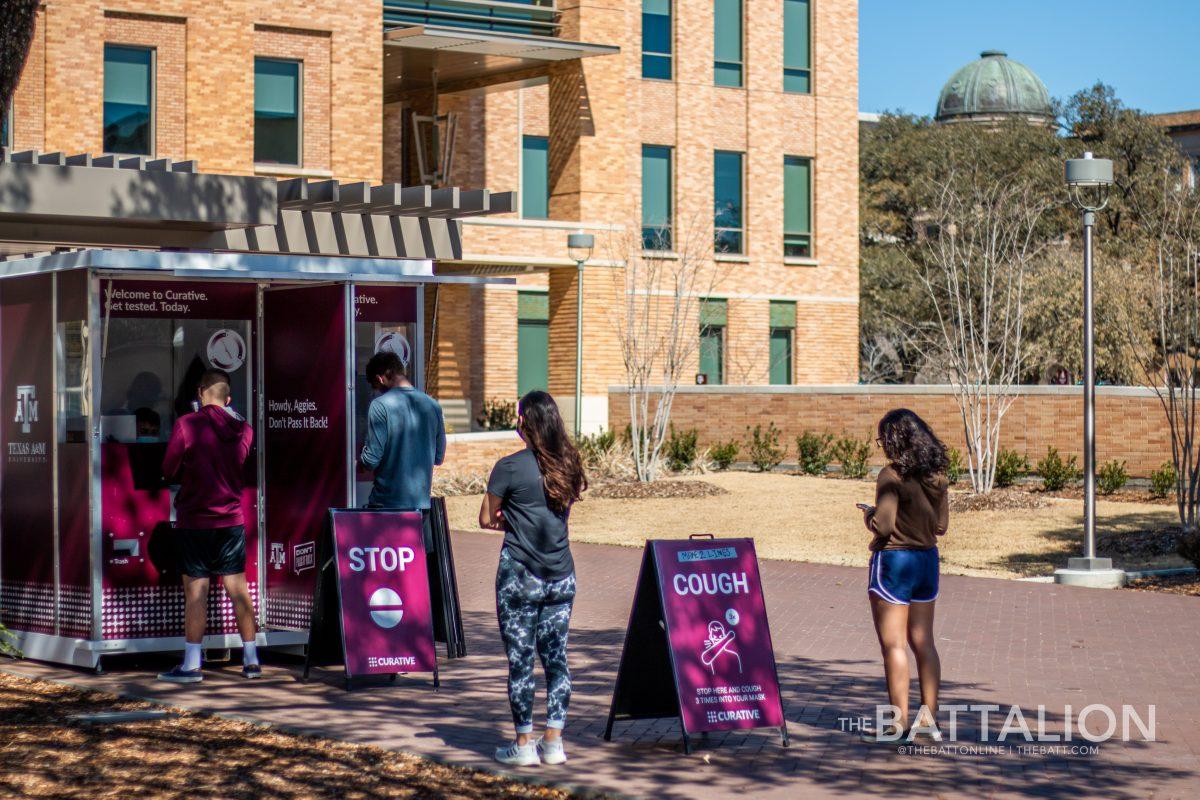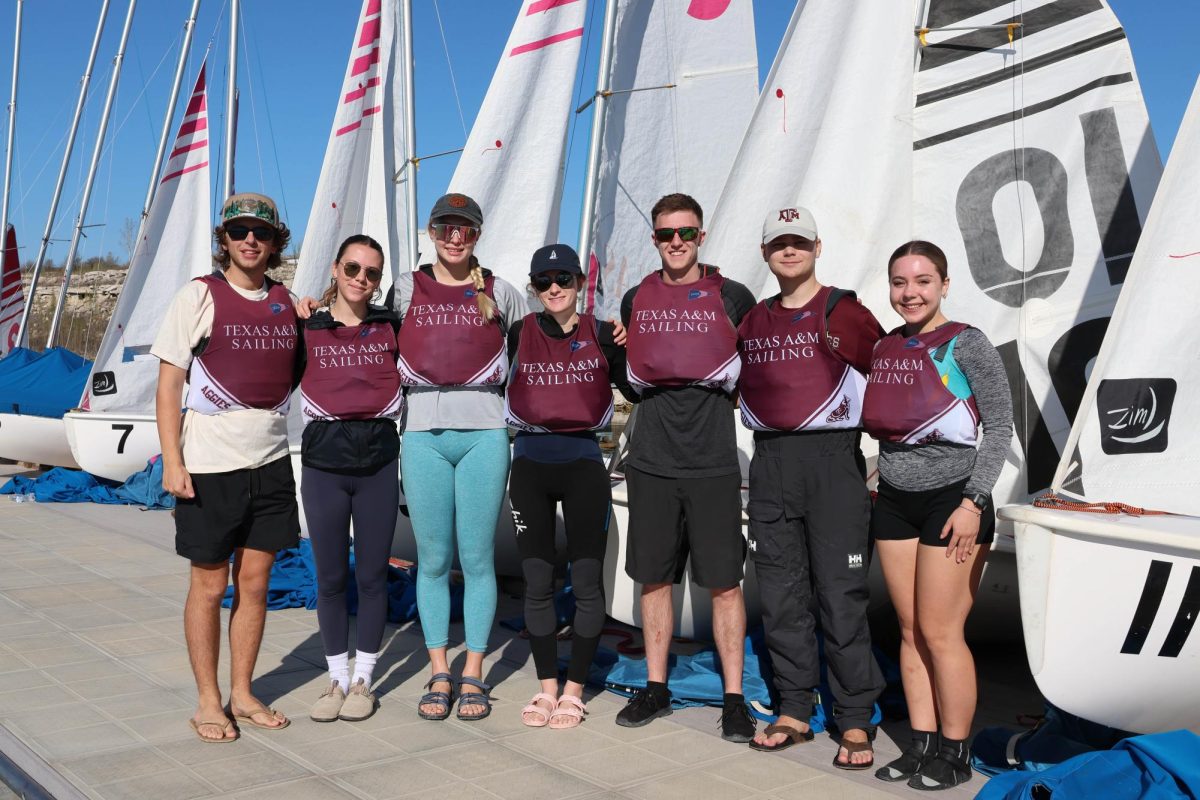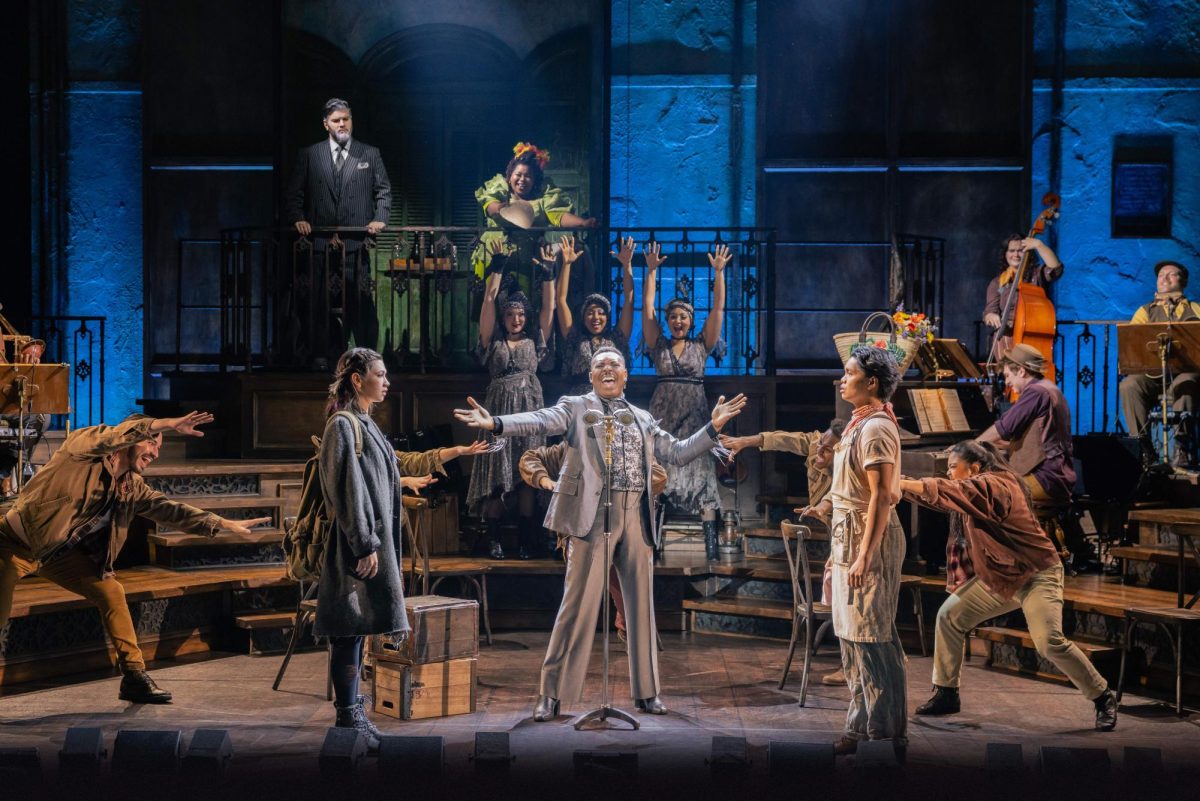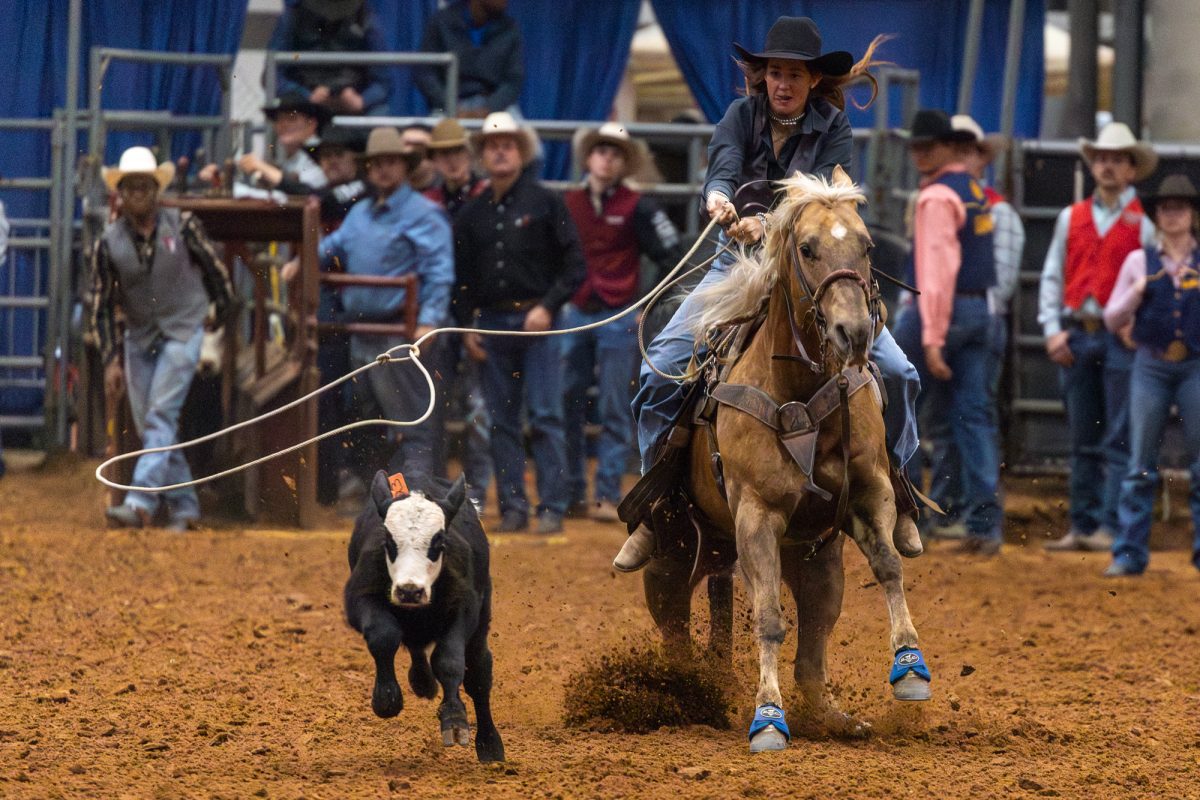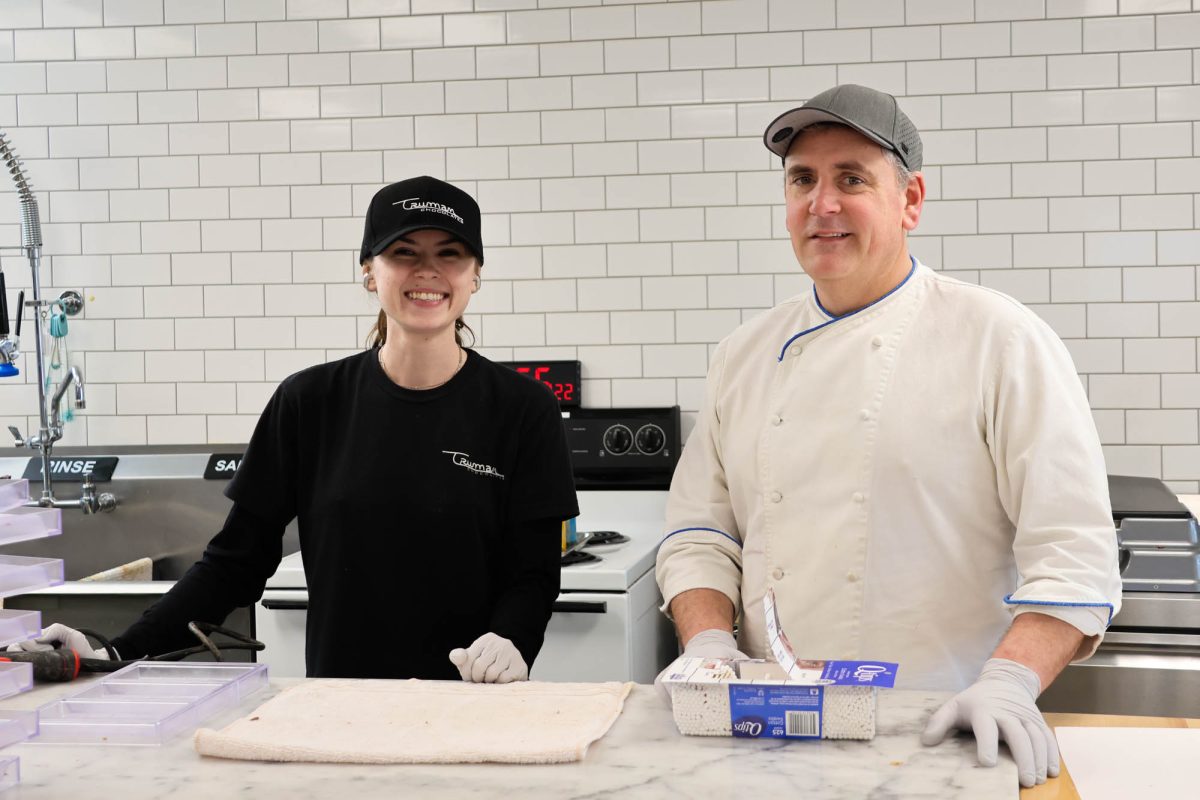COVID-19 and the ensuing health and safety protocols have now affected the United States and the world for over a year. As the pandemic continues and governments and universities reconsider how to handle reopenings, students have had mixed reactions to leadership decisions.
On March 12, 2020, Texas A&M sent out a COVID-19 update, moving all classes for the spring 2020 semester completely online. Since then, in-person classes have been limited, student organizations have been forced to make concessions and nearly every aspect of student life was touched in some way.
For some, the pandemic has benefited them for virtual learning, one of whom is history senior Blayde McKay.
“It’s not much of an inconvenience to me,” McKay said. “I think my grades have gotten better, honestly. I teach myself better. Before I would just not go [to in-person classes] if I didn’t have to, but now I can just turn [Zoom lectures] on, so that’s pretty cool.”
Though McKay found his schoolwork has improved, he said he has been disappointed by community reaction and response to the pandemic.
“It’s been handled poorly, but I think people have gotten better here,” McKay said. “I think people not caring is a product of where we are … I think they just lack empathy for other people, so if they can’t breathe because their mask is too restrictive, they’re going to complain about it.”
English junior Sean Thomas said he has observed the growth of the coronavirus from early on and has concerns.
“I started following COVID[-19] while it was beginning in China,” Thomas said. “Once I started seeing that 10,000 people were sick … [I knew] we had this situation that could get worse. I was working at H-E-B, so I was around people all the time … I didn’t think how it would affect us until March came around and campus got shut down.”
Thomas said he is unsure of what the future will hold for students, especially for his family members who are still in their elementary through high school education.
“My brother has been homeschooled so it worked out for him, but my nephew is in fourth grade this year, and the issue for him is he doesn’t have the attention span to sit there as this little boy,” Thomas said. “It’s having this personal experience and knowing that it’s not just me being affected, or my family being affected, this is affecting millions of people.”
Others, like English junior Jensen Smith, have been surprised by how long the pandemic and the accompanying protocols have lasted.
“When COVID[-19] initially shut down the country, I genuinely thought it would only last a few weeks, maybe a month, and then life would be back to normal,” Smith said. “I assumed it would just be another flu-like handling of a virus where we would be cautious, but still go on living our lives like normal, just with a little extra hand-washing. Obviously, I was wrong.”
In addition to the pandemic’s endurance altering safety habits, Smith said her lifestyle has greatly changed, both academically and personally.
“My social life has become relatively nonexistent, which was really terrifying for a while,” Smith said. “I’ve recently moved back home to cut back on expenses and work my old job here in my hometown. The transition from life on my own in College Station, to life back in my parents’ house has been a stressful experience, and it has definitely added to the difficulty of online classes.”
Thomas said what he misses the most about life pre-COVID-19 is the ability to connect with others socially, whether that’s in school or during his free time.
“I like that personal experience, I don’t think we get that on Zoom,” Thomas said. “I feel terrible for the professors more than anyone … I’ve just been going to school now for the past year, I’ve been stuck in my little box. I could go do things, and [my fiance and I] do outdoorsy things, but it’s been a very secluded experience.”
Editor’s Note: Sean Thomas is a former opinion writer for The Battalion.
Students reflect on a year of COVID-19
March 3, 2021
0
Donate to The Battalion
$1915
$5000
Contributed
Our Goal
Your donation will support the student journalists of Texas A&M University - College Station. Your contribution will allow us to purchase equipment and cover our annual website hosting costs, in addition to paying freelance staffers for their work, travel costs for coverage and more!
More to Discover




